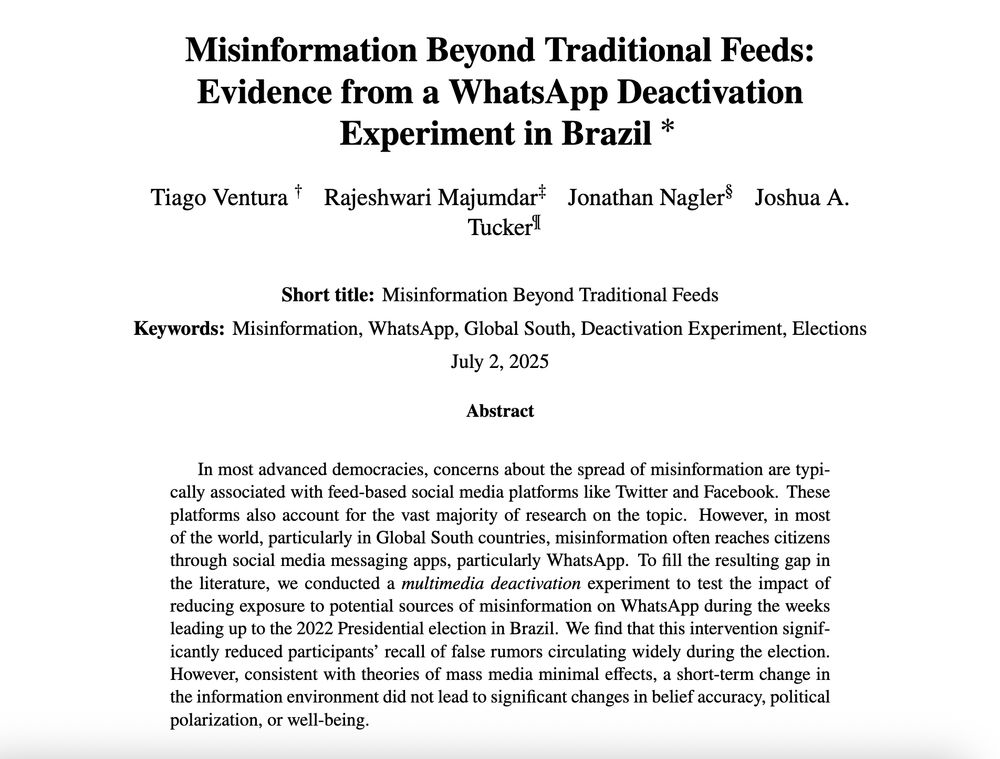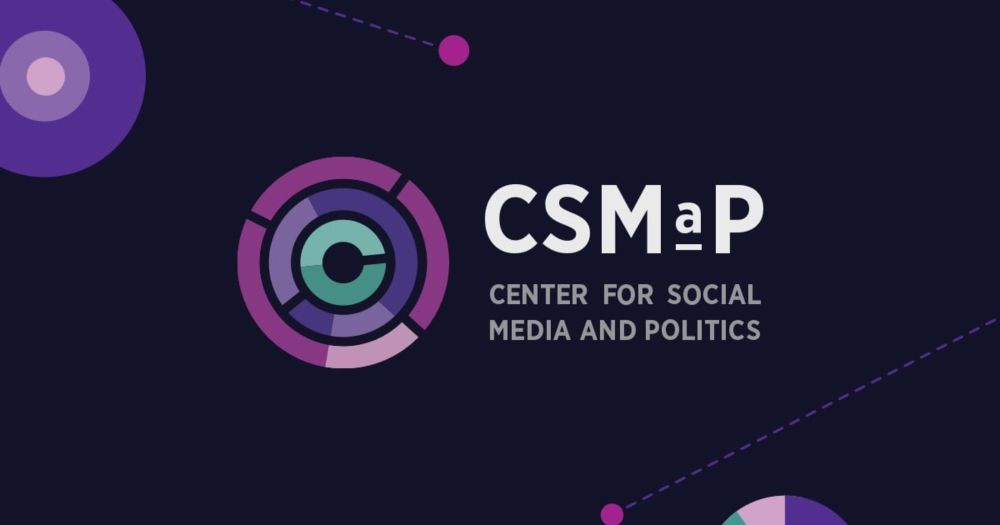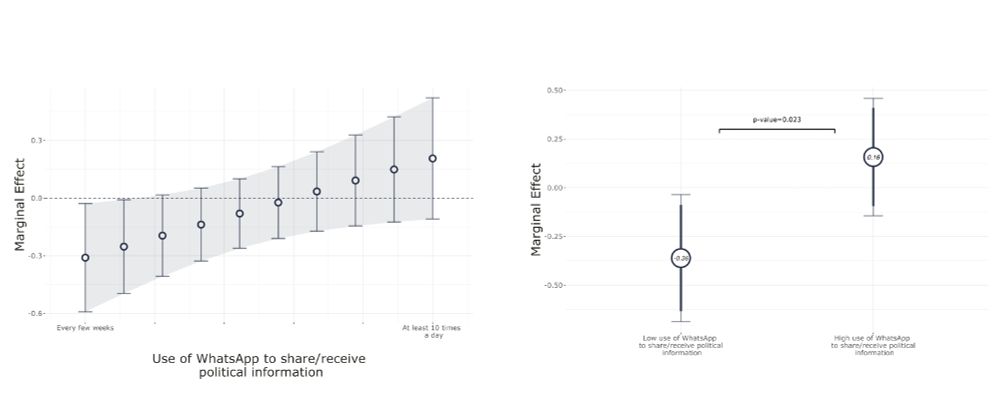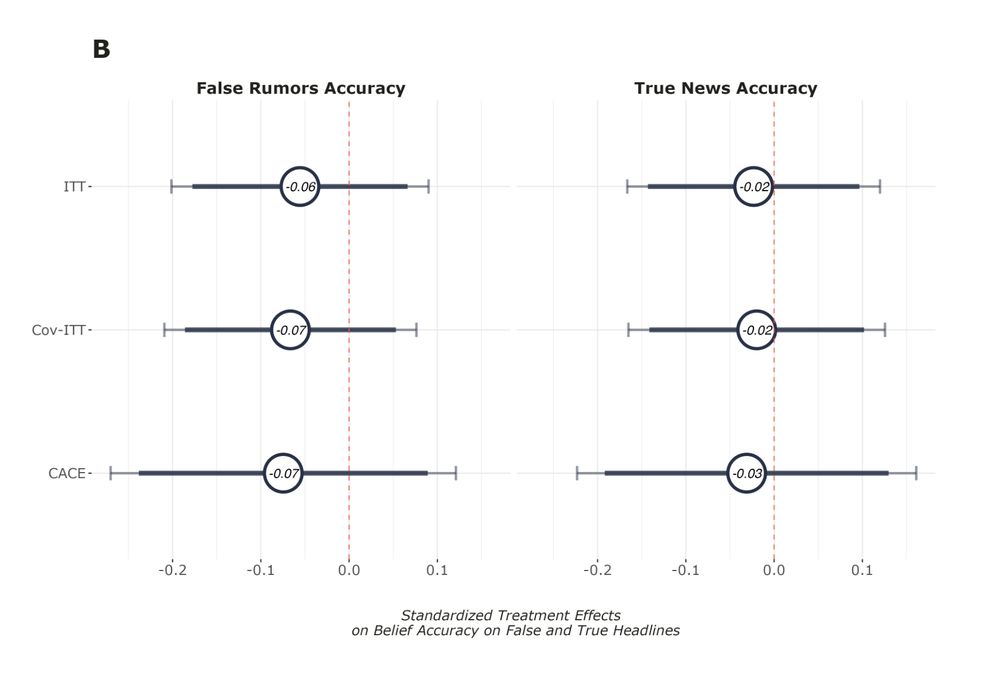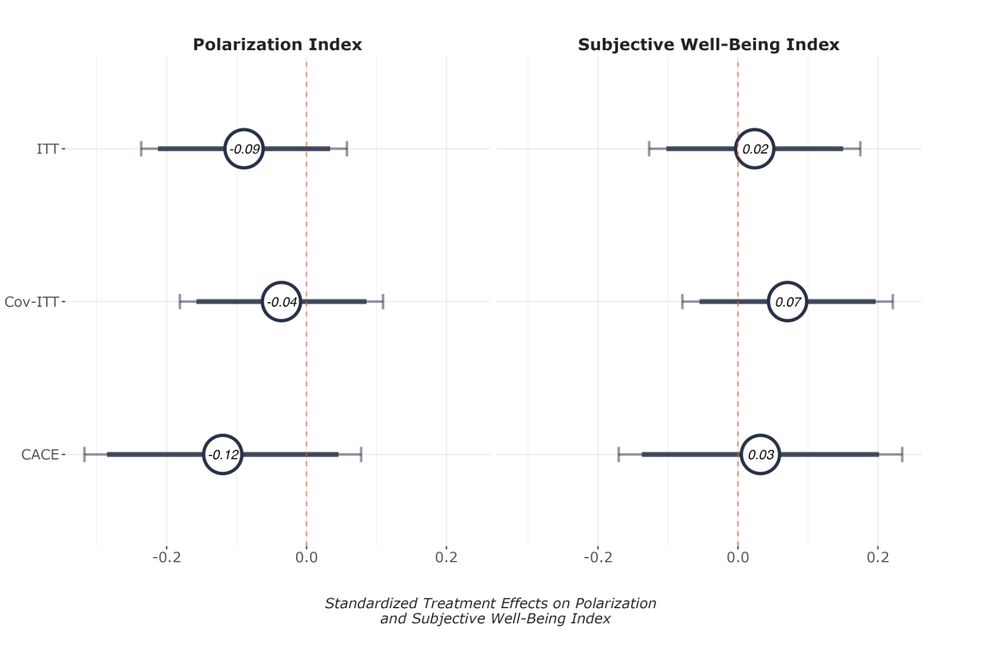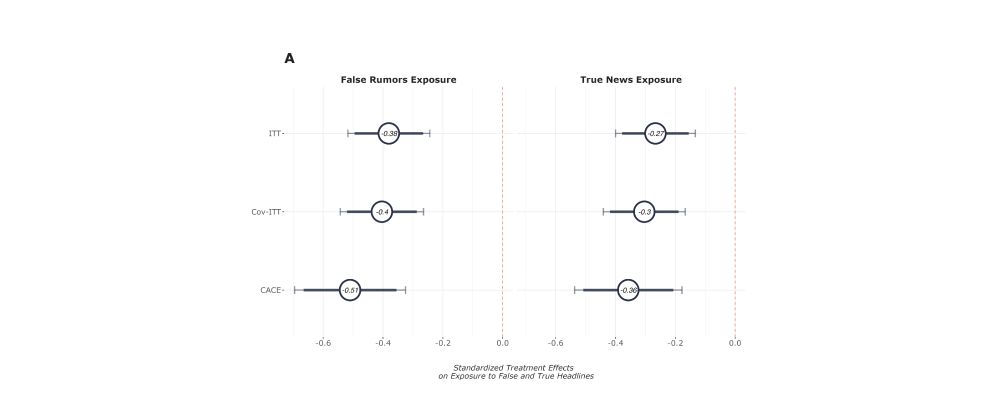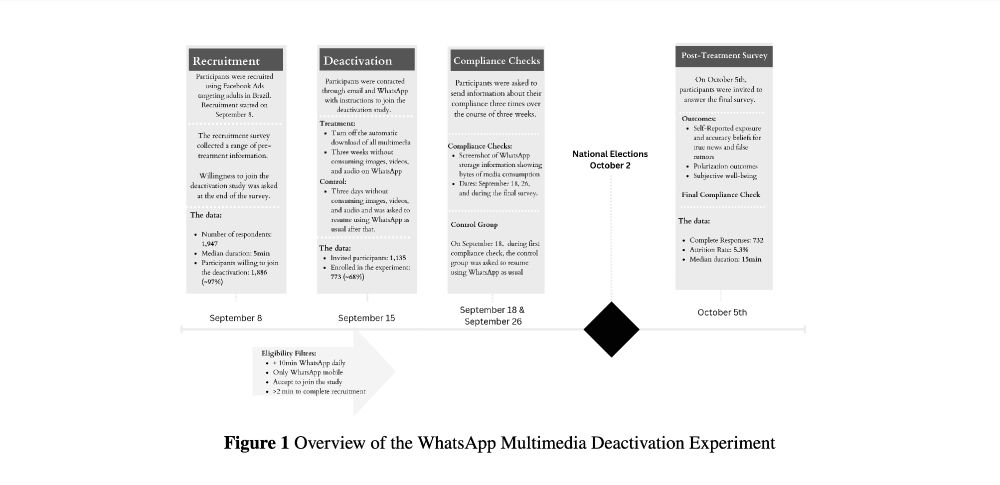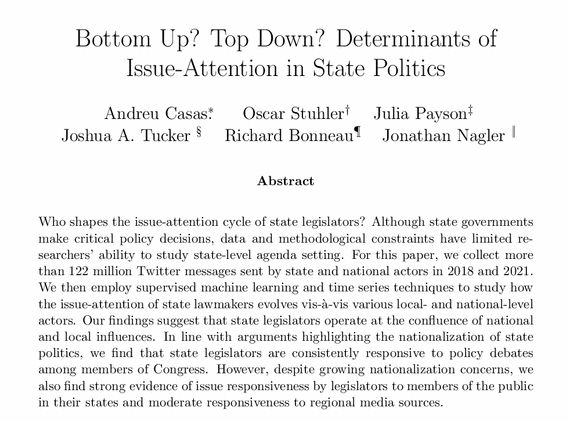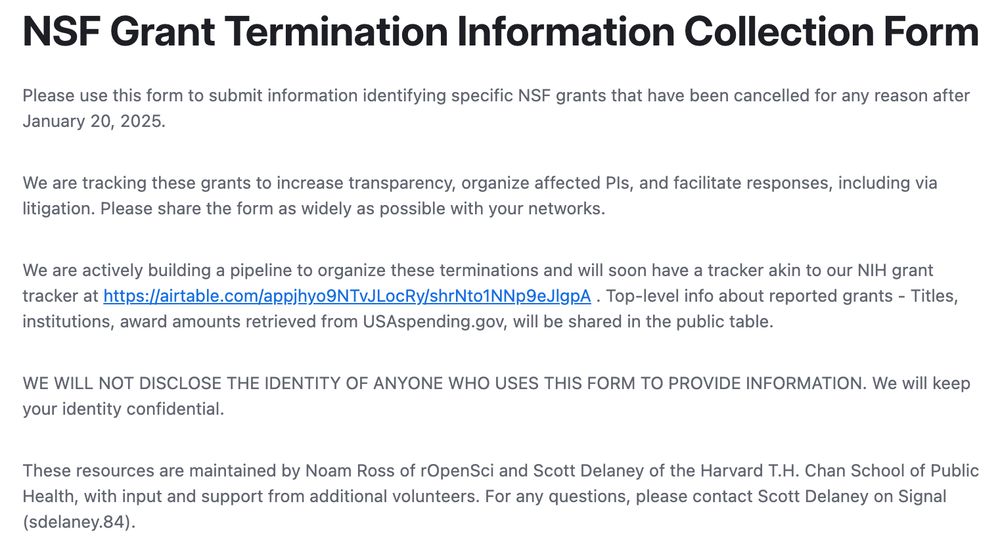NYU's Center for Social Media and Politics
@csmapnyu.org
12K followers
620 following
430 posts
We work to strengthen democracy by conducting rigorous research, advancing evidence-based public policy, and training the next generation of scholars.
https://csmapnyu.org/links
Posts
Media
Videos
Starter Packs
Reposted by NYU's Center for Social Media and Politics
Reposted by NYU's Center for Social Media and Politics
Reposted by NYU's Center for Social Media and Politics
Reposted by NYU's Center for Social Media and Politics
Reposted by NYU's Center for Social Media and Politics
Reposted by NYU's Center for Social Media and Politics
Reposted by NYU's Center for Social Media and Politics
Reposted by NYU's Center for Social Media and Politics
Reposted by NYU's Center for Social Media and Politics
Hannah Waight
@hwaight.bsky.social
· Jun 18
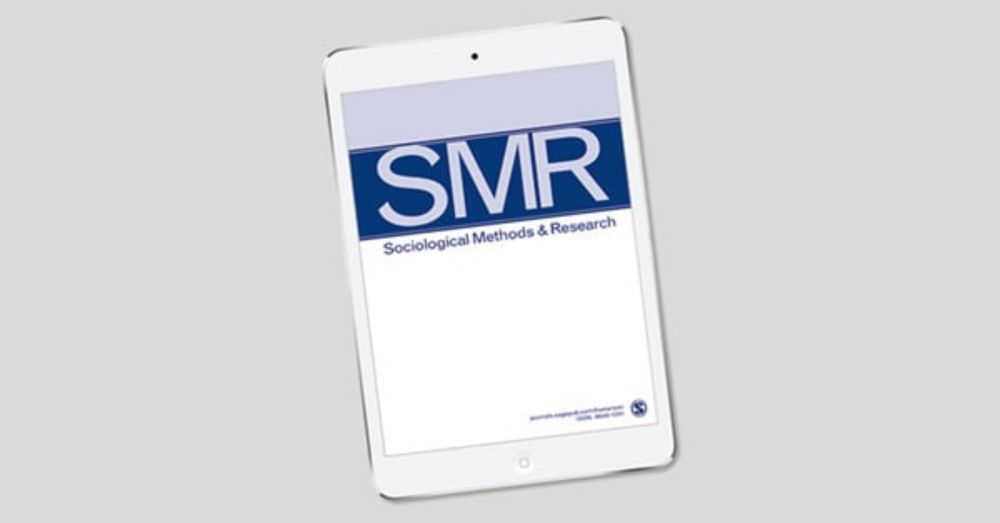
Quantifying Narrative Similarity Across Languages - Hannah Waight, Solomon Messing, Anton Shirikov, Margaret E. Roberts, Jonathan Nagler, Jason Greenfield, Megan A. Brown, Kevin Aslett, Joshua A. Tuck...
How can one understand the spread of ideas across text data? This is a key measurement problem in sociological inquiry, from the study of how interest groups sh...
journals.sagepub.com
Reposted by NYU's Center for Social Media and Politics
Andreu Casas
@andreucasas.bsky.social
· Apr 23
Reposted by NYU's Center for Social Media and Politics















